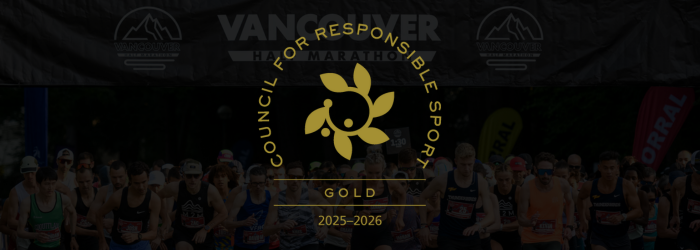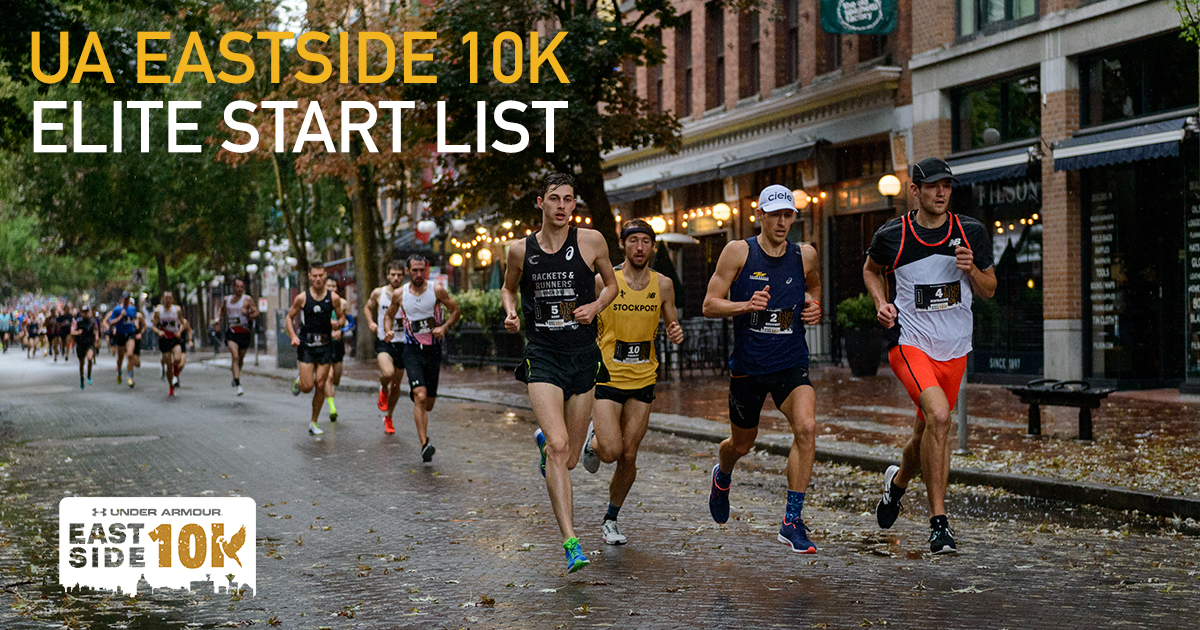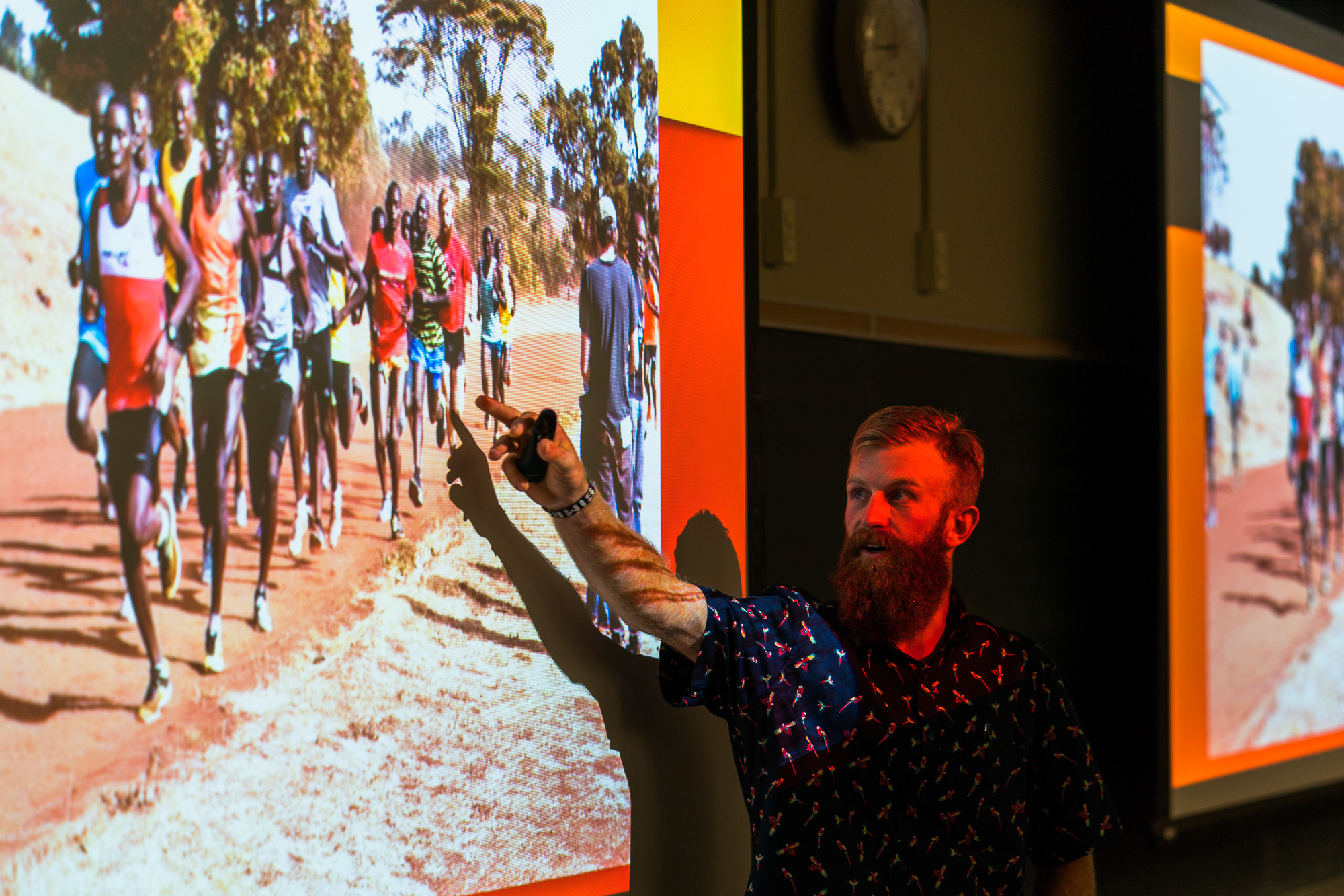
The Speed River Track Club hosted Marathon Night on June 12 featuring three of Canada’s top marathoners.
The evening featured Canada’s second fastest marathoners in history in Reid Coolsaet and Krista DuChene as well as 2:18:25 marathoner John Mason. All three are regulars at the Scotiabank Toronto Waterfront Marathon and other Canada Running Series events including the Toronto Waterfront 10K. The runners spoke at length, from Guelph, Ont., about their history in the sport, lessons learned and what their future holds.
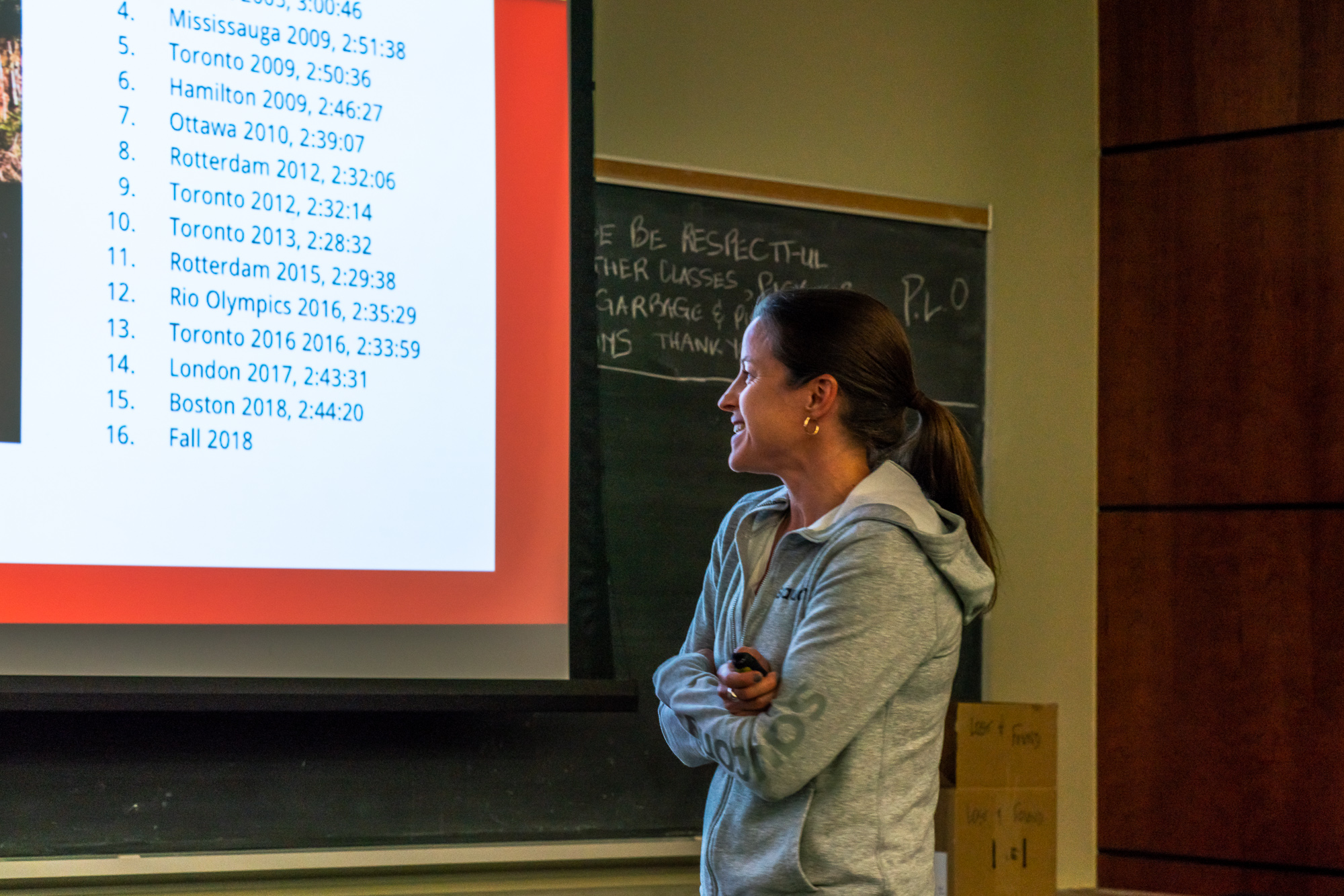
“As the race approached, we had our technical meeting, and the message was clear: the weather is going to be awful. So, I think with us being Canadians, we (Eric Gillis and Reid Coolsaet) started looking around the room and they said ‘you know Krista, some of these women here aren’t going to like this.’ Race morning, it was pretty nasty out [in Boston], and we got on the bus to Hopkinton and I remember looking out the window and thinking, ‘it’s not raining hard enough.’ Sure enough, the rain came; I was pleased with that.”
– Krista DuChene, reflecting on her preference for poor weather on race day at the 2018 Boston Marathon.
“I started with the lead pack, and I remember I was running beside (2017 New York City Marathon champion) Shalane Flanagan, and I thought, ‘this isn’t right.’”
– Krista DuChene, describing the first kilometre of the 2018 Boston Marathon, a historically slow-paced race due to the weather.
“Third? You mean third masters, right?!”
– Krista DuChene, reflecting on finishing third overall at the 2018 Boston Marathon, when her goal was to place in the top-15. This was her reaction shortly after finishing the race and learning of her result for the first time.
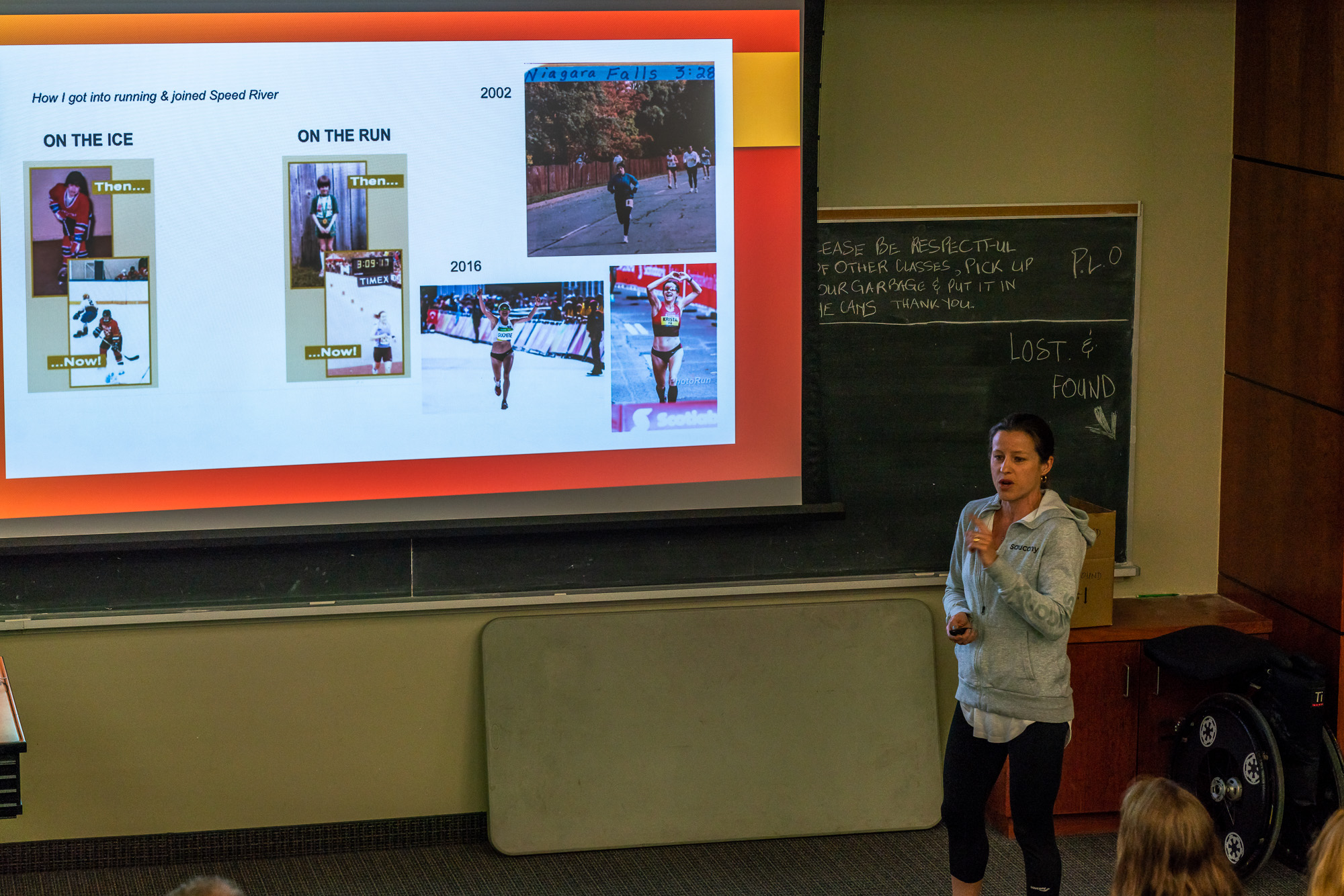
“I think a lot of people, myself included, thought that maybe the Olympics was the peak of my career but it just seems to keep getting sweeter and thicker, like icing on a cake.”
– Krista DuChene, describing her 2018 Boston Marathon podium finish.
“Moving forward, I have no good reason to not try to make the next standard for [the] Tokyo [Olympics].”
– Krista DuChene, 41, on her goals beyond this year.
“The Canadian record is 2:10:09, I’m not going to talk about it too much, but it’s hugely motivating for me to break 2:10. It just so happens that the Canadian record is right there.”
– Reid Coolsaet on the prospect of breaking 2:10 in the marathon. He’s broken 2:11 multiple times including his all-time PB of 2:10:28. He’s racing the 2018 Scotiabank Toronto Waterfront Marathon on Oct. 21.
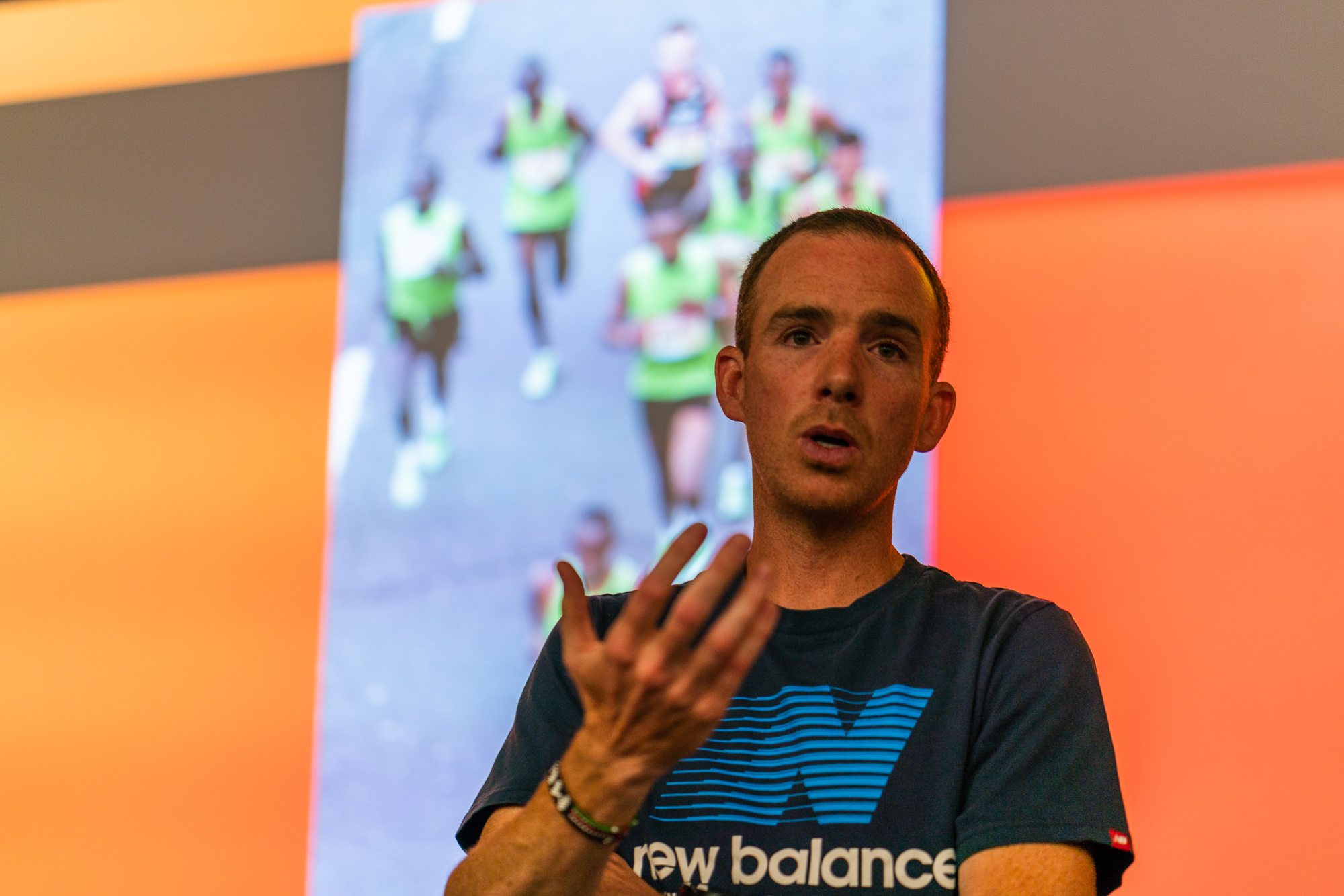
“What are we going to wear for the race? Never before any race have I talked with my competitors about what they’re going to wear. It’s always been just shorts and singlet. I wore two pairs of half tights, and Eric [Gillis] thought that was overdoing it. Eric wore three pairs of gloves, and I thought that was overdoing it. We really didn’t know what to wear.”
– Reid Coolsaet, who finished ninth on the day, in the minutes before the 2018 Boston Marathon, which featured rain, wind and cold weather.
“I haven’t spoken much about 2020 because, especially in 2016, it seemed far away. In 2017, I wasn’t running, so it didn’t seem applicable. This year, I was focused on Boston for the first part, and now, when I look ahead to 2019 (theoretically when qualification window opens up for the 2020 Olympics), it doesn’t seem far away. So, OK, if I feel good, why wouldn’t I?”
– Reid Coolsaet, 38, chatting about the possibility of pursuing the qualifying standard for the 2020 Tokyo Olympics.
“I’m old school, I still write down my training in a diary and, 11 weeks out from Rotterdam, I began writing 2:18:xx above each week’s Monday because I figured, in my head, 2:18 is what I was capable of, and in the back of my mind, I thought, ‘you need to do that or you shouldn’t be marathoning anymore.’”
– John Mason, reflecting on his breakthrough 2:18:25 at the 2018 Rotterdam Marathon, the top time among Canadians so far this year.
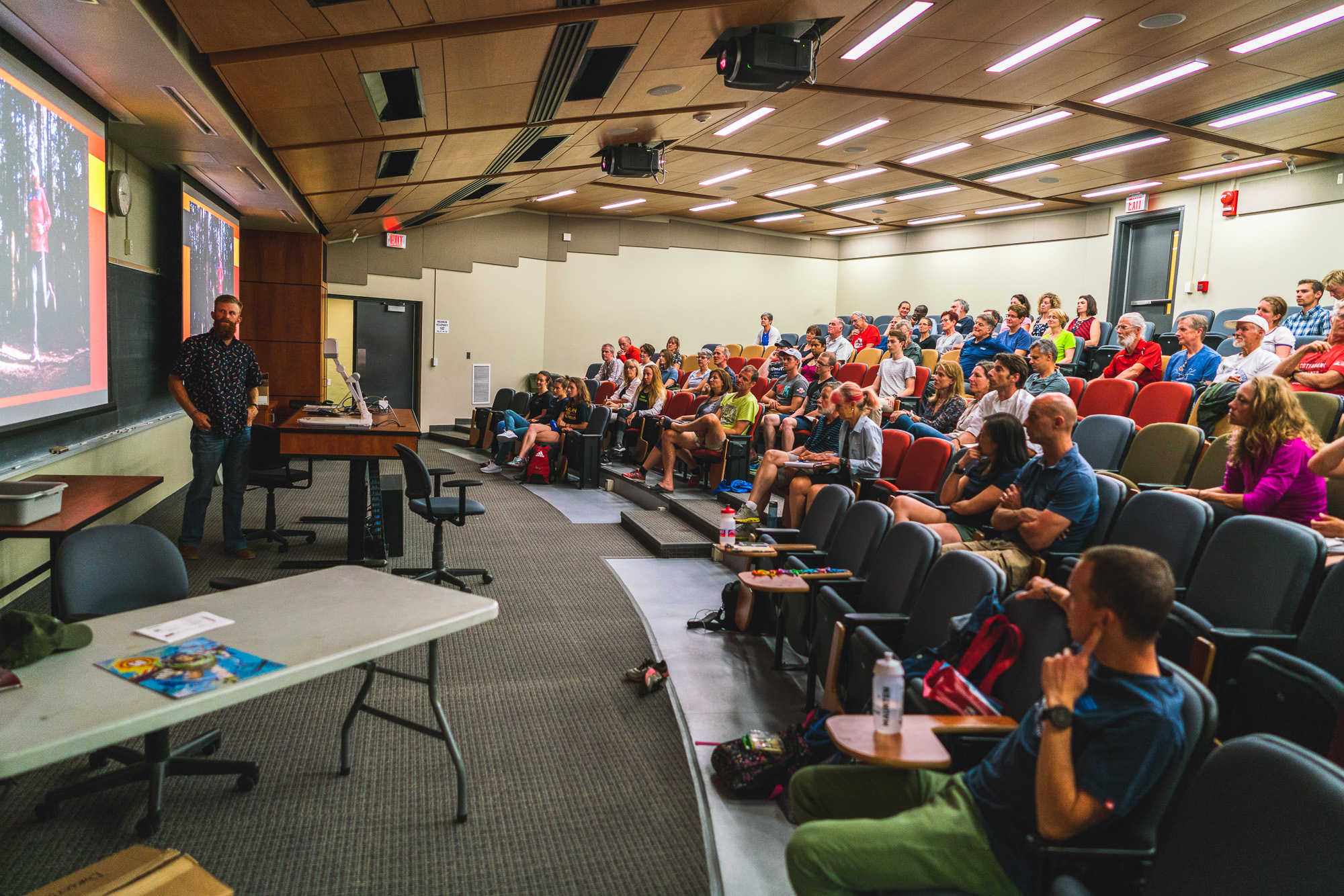
“I was terrified of not breaking 2:20.”
– John Mason, reflecting on what was going through his head in the final kilometres of Rotterdam as he calculated the pace required to dip under that barrier.


